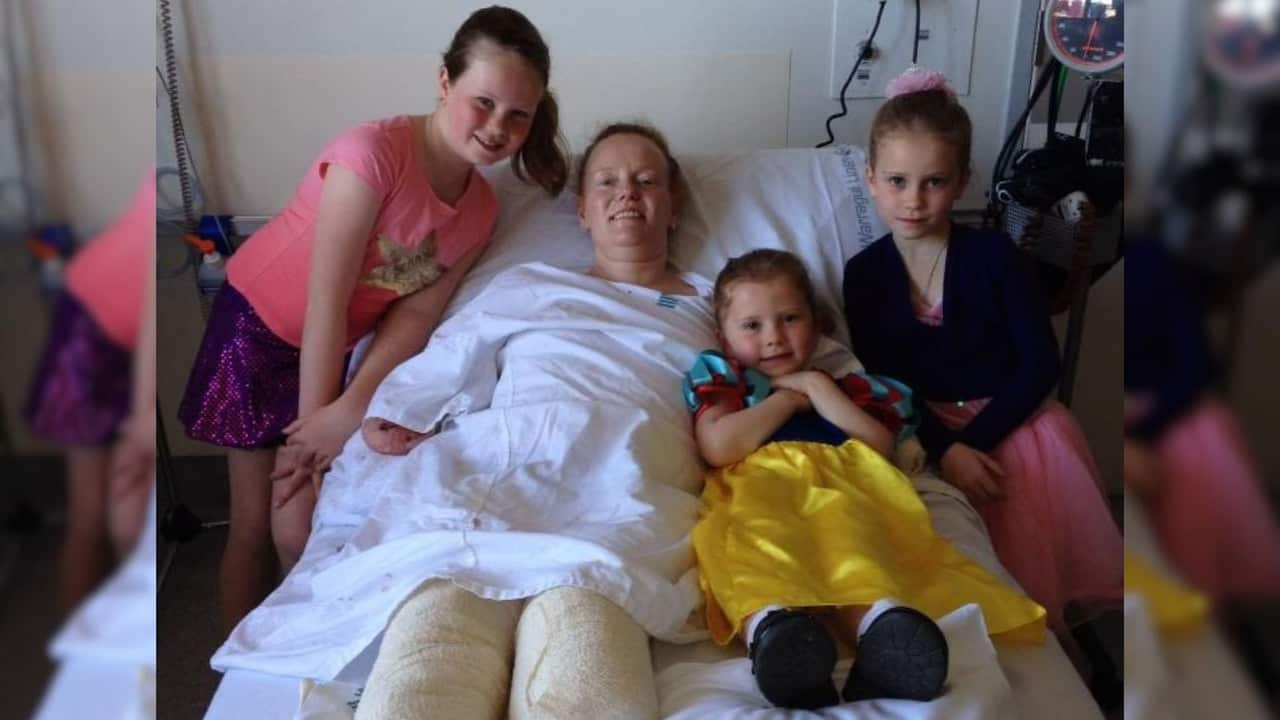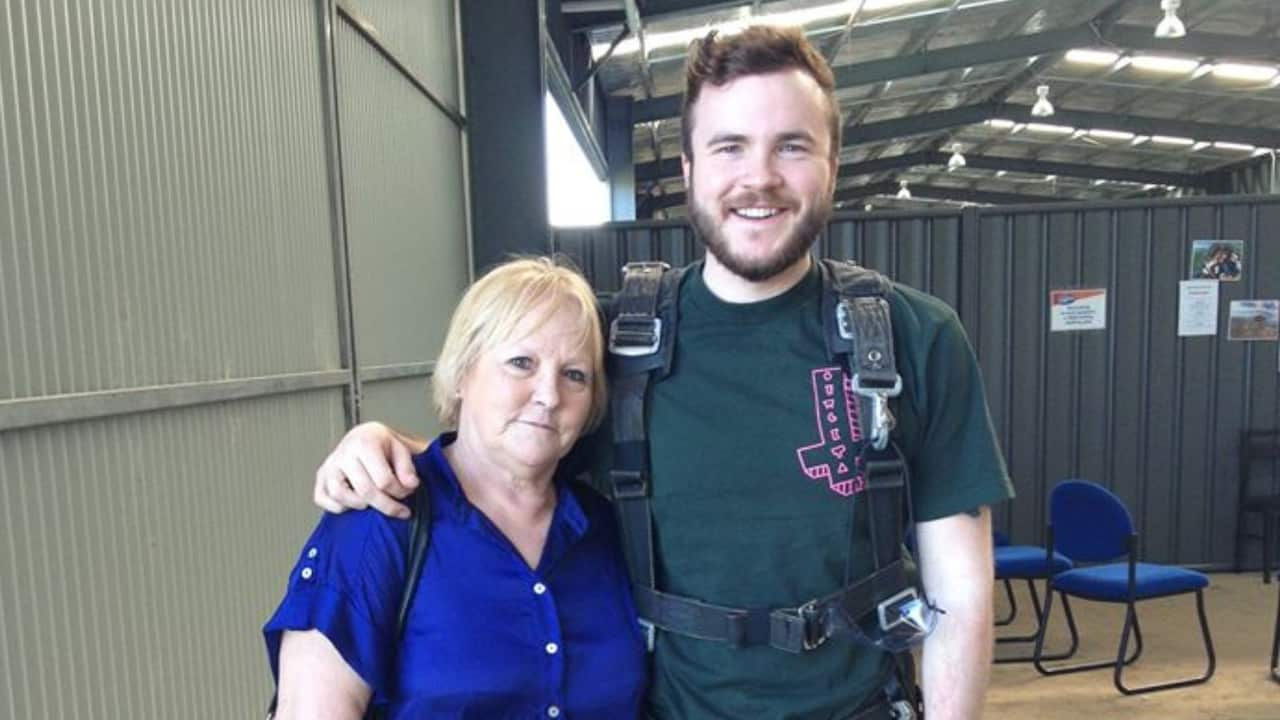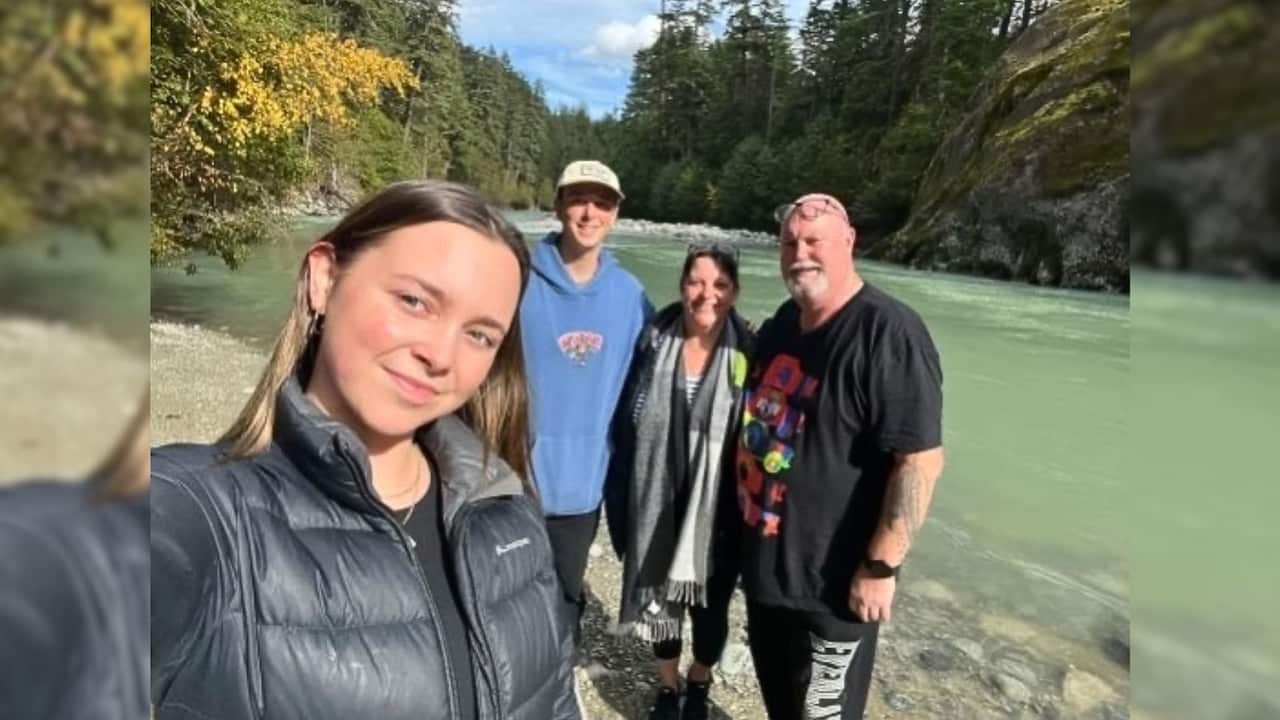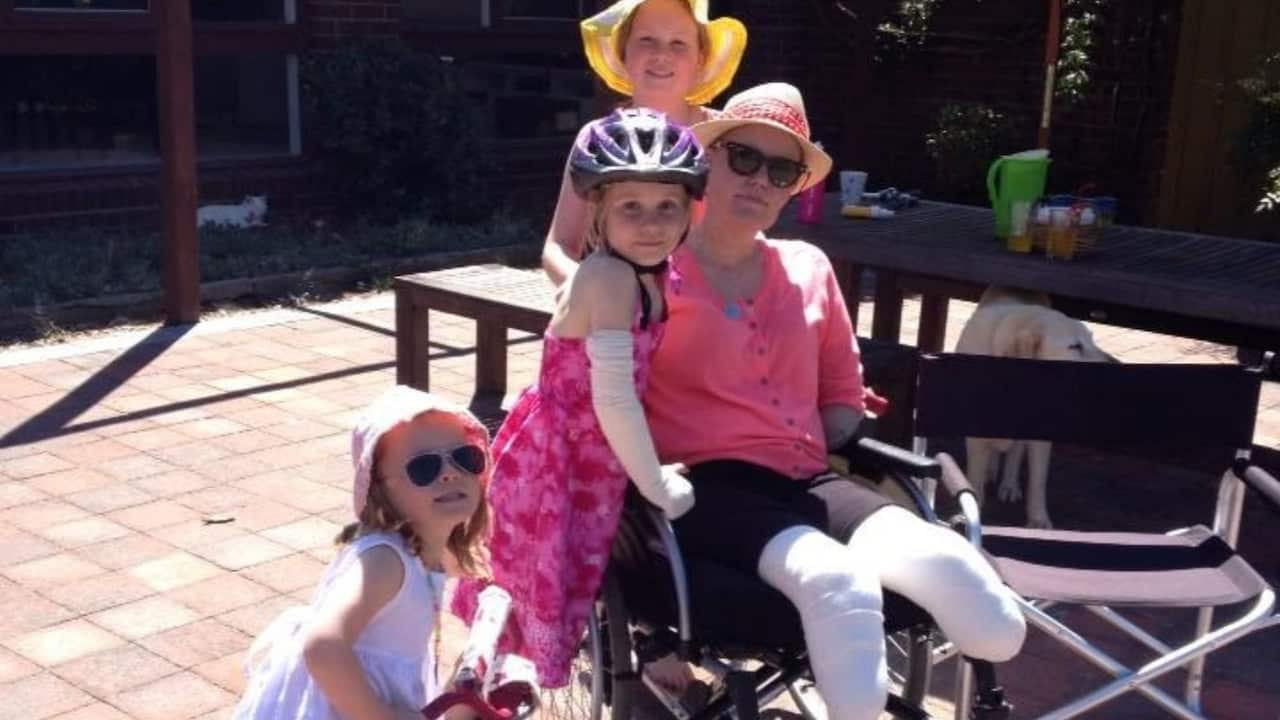The will to survive is the psychological determination to live when facing extreme adversity or life-threatening situations. It can be seen in overcoming personal struggles and maintaining a positive outlook. Insight asks what drives it, in episode Will to Survive. Watch on SBS On Demand.
This article contains references to suicide.
Stream free On Demand

Will To Survive
episode • Insight • News And Current Affairs • 50m
episode • Insight • News And Current Affairs • 50m
Mandy McCracken, 51, was 39 years old when she was struck down with what she thought was a gastro bug.
After three days of experiencing flu-like symptoms, she threw up what looked like "black coffee granules".
This is when Mandy knew it was time to call the ambulance, and she was rushed to hospital.
"The nursing staff immediately grabbed me, put a needle in my arm and then everything went black."

She had sepsis — its cause couldn't be pinpointed — and needed emergency surgery to pump septic fluid out of her body.
Her husband Rod was told to bring their three daughters to the hospital to say their goodbyes to their mother.
"For a four-year-old to come and say goodbye to her mother is a tremendously difficult thing to make a child go through," Rod said.
Mandy awoke from an induced coma after 10 days.
Her hands and feet were black though, and her hands were starting to curl.
Her hands and lower legs had to be amputated.
After a month in intensive care, a nurse decided to take Mandy outside for some fresh air.
It took two hours to unplug every machine she was attached to, and reattach to portable devices, before they could go outside.
This excursion to one of the hospital's courtyards became a turning point for Mandy.
"This little finch came down and jumped in front of me and sat in a tree. I watched this bird bump around and I thought ... 'life is just so precious'," Mandy said.
"I decided that day that this is going to make me. This is going to be my strong point. I'm going to survive this. I'm going to thrive in this. I am going to be a better person for going through this."
'I accepted that death but going to happen'
Brad Guy, 33, was living his best life when he was 22. He had landed an amazing job in radio shortly after finishing university and had fallen in love for the first time.
When Brad went skydiving using a voucher he had been given for his 21st birthday, his whole family turned up to watch — his mum, dad, three sisters and their husbands, niece, nephews and his boyfriend at the time.
"Getting up there ... it's all, it's scary. But it's meant to be that way," Brad told Insight.

After Brad, in tandem with his instructor, jumped out of the plane at 15,000 feet (4.5km) and free-fell for six or seven seconds, the parachute was deployed. But it didn't open properly.
The emergency parachute was then deployed, but it had been caught up with the first one.
"We're smashing all over the place ... harness is nearly coming off ... they're tangled together and we don't really slow down at all," Brad said.
Convinced he was about to die, Brad's thoughts turned to his family.
"I accepted that death was going to happen ... but in the moment, I also felt really guilty," he said.
"I felt really shameful because I knew my whole family was there. And I just felt so sorry for them ... they were seeing me fall without the parachutes opening."
'I just became a complete shell of myself'
The instructor managed to guide himself and Brad to the safest landing place he could: the embankment next to a lake on a golf course. It wasn't a gentle landing.
"I remember initially feeling like my spine had been ripped out," Brad said.
He could not feel the bottom half of his legs nor move the top of his body.
"I instantly thought 'okay I'm a paraplegic — and I'm also lying on top of a dead person'."
Fortunately, they both survived.
Brad's spine was broken, and he had torn ligaments in his neck, cracked ribs and bruising. But it was the emotional trauma that took the biggest toll.
Brad says he was diagnosed with PTSD nightmare disorder — experiencing night terrors and depression.
He locked himself in his room for four months.
Due to his injuries, he wasn't mobile and needed help from his mum to eat and shower.
"I just became a complete shell of myself, and I borderline lost the will to live," Brad said.
"I had contemplated ending my life because I felt that everything I was experiencing was very permanent."
Instinct or a conscious decision?
Professor of psychology Richard Bryant believes that the will to survive often derives from making a conscious decision, rather than instinct.
"I think in the initial phase, we all very much often react in a similar way. But as time moves on, there's a lot more variability in how people react," Bryant told Insight.
Bryant, who is the director of the Traumatic Stress Clinic at Sydney's Westmead Hospital, says that people differ in terms of using coping resources and social supports.
"A lot of their own history comes into play ... and often it's a conscious decision: 'I am going to survive'," he said.
"We're never trained for trauma. It occurs to us, and then we've got to work out from that moment: 'how do I deal with it'?"
Surviving Black Saturday
Michelle and Steve Nash survived the 2009 Black Saturday fires in Victoria, one of the deadliest bushfires in recorded Australian history.
One hundred and seventy-three people died and more than 2,000 homes were destroyed. One of these houses was Michelle and Steve's family home.
When the fire reached their town of Kinglake, about 60km north-east of Melbourne, Michelle was in the Country Fire Authority shed with their two young children, Teagan and Lachlan — and about 200 other people — while Steve was on the frontline as a volunteer firefighter.
"At one point in time, I thought, 'we are in trouble here ... I'm going to die with my kids'."Michelle Nash
Steve and Michelle were able to have a brief phone call.
"We didn't say goodbye. But we did tell each other that we loved each other, because we didn't know what was going to happen," Michelle said.
They then lost contact for five hours.
"I didn't talk to [the kids] about what was going on. I was actually trying to protect them because they were only five and seven years old at the time," Michelle said.
"At one point in time, I thought, 'we are in trouble here ... I'm going to die with my kids'."

Many families left the Kinglake area after the devastation to the area and community, however Michelle and Steve's determination to stay didn't waver.
"I feel like the fire controlled us that day, but just for that day," Michelle said.
"Yes, we lost our home. But at the end of the day, our home is just walls and plaster."
'I know exactly how to survive'
Years on from her 10-month hospital stay, Mandy credits mental health professionals with keeping her family on track in the aftermath.
She says she had great support from psychologists, as did the rest of the family.
"This is a permanent thing for us. My disability, it doesn't go away," she said.
"We will always be checking in on each other and following up professional support when we need it."

Brad also sought professional mental health support for the trauma caused by the skydiving incident.
With counselling and love from his family, he says he has slowly fought back to reclaim a "new life" over the past 12 years.
"I'm still scarred forever. This is who I am. But I started to feel like I've got this infinite well to draw from. I've always got that strength and always got that resilience," he said.
"I know exactly how to survive, because I still have to continue to do it every single day."
This article was first published in August 2025.
Readers seeking crisis support can contact Lifeline on 13 11 14, the Suicide Call Back Service on 1300 659 467 and Kids Helpline on 1800 55 1800 (for young people aged up to 25).
More information and support with mental health is available at beyondblue.org.au and on 1300 22 4636. Embrace Multicultural Mental Health supports people from culturally and linguistically diverse backgrounds.
And for more stories on sex, relationships, health, wealth, grief and more, head to Insightful — an SBS podcast series hosted by Kumi Taguchi. Follow us on the SBS Audio App, Apple Podcasts, Spotify, or wherever you get your podcasts.
Insight is Australia's leading forum for debate and powerful first-person stories offering a unique perspective on the way we live. Read more about Insight
Have a story or comment? Contact Us


